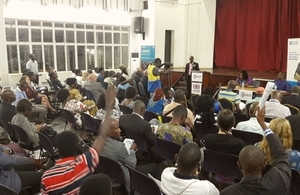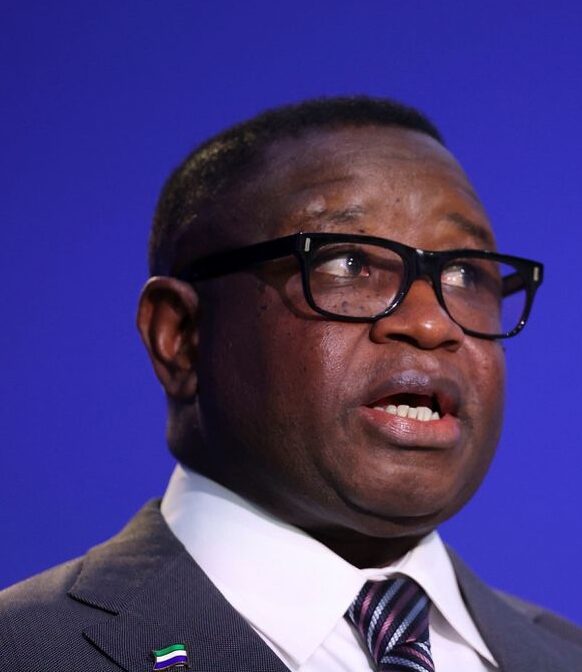On Wednesday evening the Government of Sierra Leone, with the United Nations, the UK Government, civil society and disabled persons organizations committed to take concerted action to improve the lives of people with disability and ensure their full participation in the economic and social development of Sierra Leone. The event, hosted by the UK government and the British Council, took place in the lead up to the Global Disability Summit in London next week. The Global Summit will be attended by the Government of Sierra Leone and Sierra Leonean Disabled Persons Organisations (DPO).
An estimated one billion people – 15% of the world’s population – have some form of disability and 80% of these people live in developing countries like Sierra Leone. Disability is both a cause and consequence of poverty and people with disabilities are less likely than others to be able to lift themselves out of poverty. People with disabilities are often the poorest and most excluded in their communities, and face significant barriers that can prevent them from realising their rights, living with dignity, and fully participating in social, economic and political life.
In Sierra Leone, children with disabilities and those with disabled parents are less likely to be in school. People with disabilities are often hidden or excluded from participating in community life and decision making. They face significant challenges in accessing important services, such as health care and in obtaining employment. This situation must change if Sierra Leone is to continue on a path to prosperity.
UK Aid supported critical work by the UN and civil society to ensure that people with disabilities were able and empowered to participate as voters, candidates and elections staff in the 2018 elections and that they had a voice in policy dialogue leading up to the election. We now want to ensure that people with disabilities can play a full role in the economic and social development of Sierra Leone.
The Global Disability Summit Satellite event that took place last night is the first in a series of events in Freetown that will drawing attention to this critical and long neglected issue and galvanise the necessary commitments from a wide range of stakeholders to bring about change. It is part of a series of events taking place around the global in the lead up to the Global Disability Summit taking place on Tuesday 24 July 2018 in London, hosted by the UK Government, in partnership with the Government of Kenya and the International Disability Alliance (IDA). The Global Disability Summit will showcase good practice, innovation and evidence from across the world.
The Government of Sierra Leone has signalled strong support for this agenda and will be represented at the Global Disability Summit by Ms Nabeela Tuni, Hon. Minister of Planning and Economic Development, Ms Baindu Dassam, Hon. Minister for Social Welfare, Gender and Children’s Affairs and Mr Mohamed Haji-Kella, Deputy Minister of Social Welfare Gender and Children’s Affairs. Joseph Alieu, Head of the Welfare Society for the Disabled in Kambia will also attend the Global Summit to represent Sierra Leone civil society and persons with disabilities.
At yesterday’s Global Disability Summit Satellite Event in Freetown, the Government of Sierra Leone, the United Nations and other participating organisations signed up to the ‘Charter for Change’ and committed to a series of actions, including: advancing inclusive quality education for children with disabilities; opening up routes to economic empowerment and financial inclusion; utilising the using an internationally recognised method to gather and use better data to understand the scale and nature of the challenges; and to promote leadership and representation of people with disabilities. Participants also committed to come back together after the Global Disability Summit in London to develop working plan to implement these commitments.
The British High Commissioner, Guy Warrington, who attended yesterday’s event in Freetown said:
“People with disabilities in Sierra Leone face significant stigma and challenges in accessing public services and employment opportunities. The country made significant progress in ensuring that people with disabilities could vote and play their role in thedemocratic process during the 2018 election with support from UK Aid, the UN and other partners. It is now time to ensure that all Sierra Leoneans, regardless of their disability status, can play their full role in the economic and social development of this country. By working together, we can achieve lasting change for people with disabilities in the world’s poorest countries, and contribute to a healthier, fairer and more prosperous future for all.”











